"Leading killer:" Aurora St. Luke's cardiologist becomes patient; diagnosed with sepsis after trip overseas
MILWAUKEE -- He was on the floor when paramedics came. He recalls he could barely breathe. Dr. Bijoy Khandheria, a 60-year-old cardiologist was in septic shock, and unable to stand.
"I crawled from the bedroom to the front door, waiting for 911,“ Khandheria said.
It was September 2016, and the Aurora St. Luke's doctor had only returned from a medical conference in China two days before.
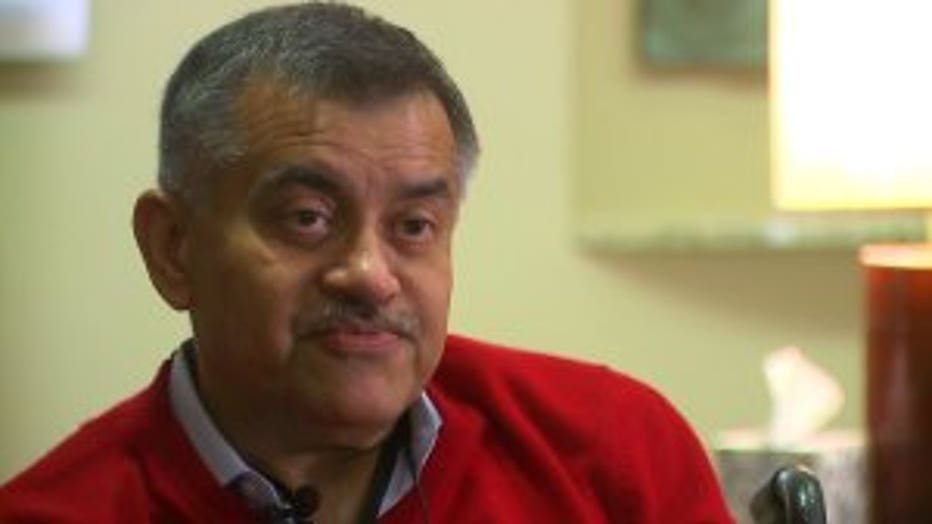
Dr. Bijoy Khandheria
Sometime during his brief overseas trip, doctors believe Khandheria contracted an infection in his right leg. By the time his plane landed back in Wisconsin, Khandheria was in serious trouble. Eric Siegal, a doctor in the ICU at St. Luke's said his colleague’s condition was grave.
“It’s a leading killer,” Siegal said. “People who come in with this kind of illness have somewhere around a 40 percent mortality rate.”
Things would get worse before they got better.
Khandheria, a husband and father, was rushed to the emergency room at Aurora St. Luke's on S. 27th Street. It’s a hospital and campus Khandheria knows exceptionally well. He, is in fact, the director of the hospital’s Echo Lab. With more than 30 years experience as a cardiologist, Khandheria has spent his entire medical career looking at, listening to and diagnosing conditions of the heart.
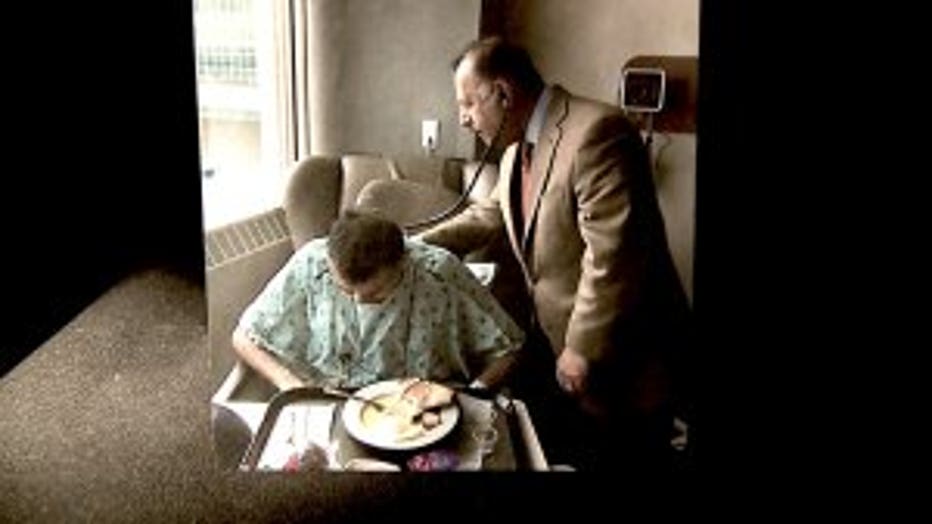
Dr. Bijoy Khandheria
“When I started, we couldn’t really look at the heart in real time. Now we can look at the heart in real time without even opening the heart,” Khandheria said.
But in the waning days of last summer, and for the first time in the decades he’s been walking the hospital hallways, Dr. Khandheria was himself, a patient -- a role he's never had.
The infection in Khandheria’s right leg was threatening his life. The medical team at Aurora St. Luke's determined the doctor’s best chance at survival was amputating his leg near the knee.
Khandheria said doctors' time to act was running out.
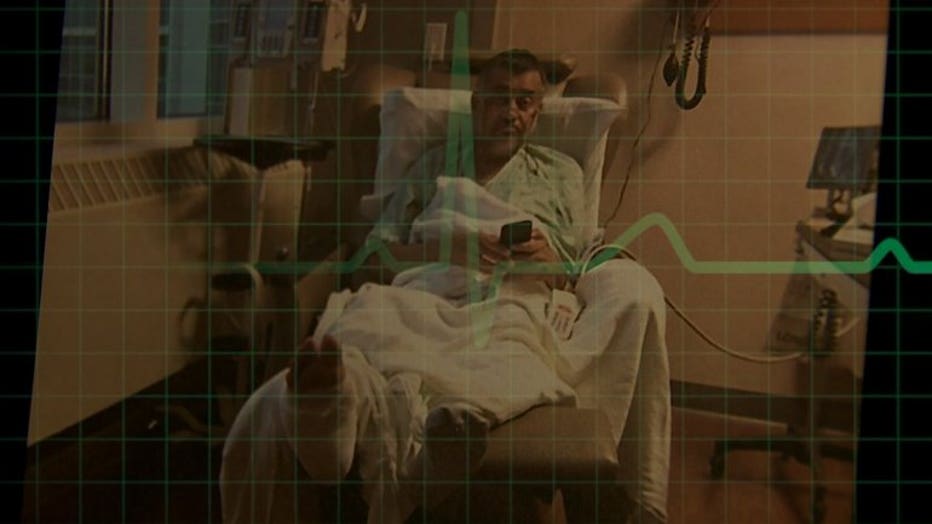
Dr. Bijoy Khandheria
“They said, you know, 'we have no choice.' I trusted them.” Khandheria said. “I knew whatever they were telling me was the right thing and I did not hesitate. As a mater of fact, I said 'let’s go for it.'”
The operation saved Khandheria’s life, but the dedicated cardiologist then wondered, would it end his career?
Not on this doctor's watch! After only a few weeks of rehab, Khandheria was back at work at Aurora St. Luke's -- not just making social calls, but working for all matters of the heart.
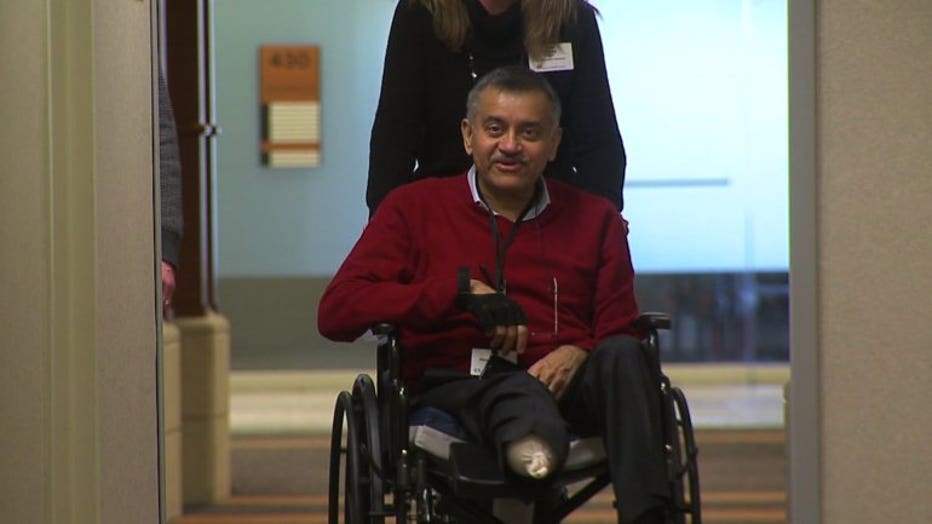
Dr. Bijoy Khandheria
"He likes to be with the patient and he likes to be engaged with the patient socially as well as medically," Dr. Amit Jhaveri said.
For the first time since he was released, Khandheria was able to make the rounds and visit with nearly every doctor and nurse that helped him recover.
"It's great to see he is back at work full-time. I didn't realize he came back quite as quickly as he did!" Jenny Metzger, RN said.
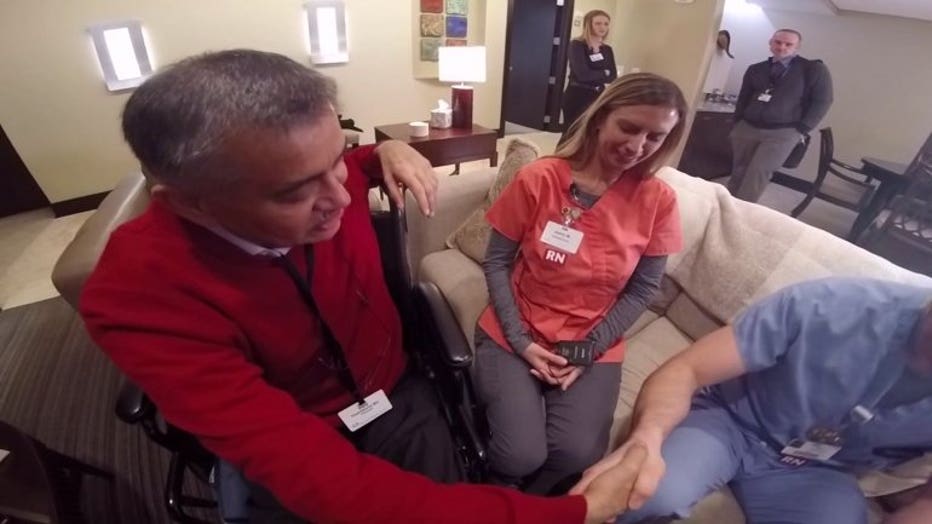
Dr. Bijoy Khandheria
"I know the rehab was critical for me. I know I couldn't have gone back to work!" Khandheria said.
Khandheria said his time as a patient was a role reversal.
"I can empathize with them now because I know exactly what it feels like, so it has made a positive impact in so far as how I take care of patients. How much more compassionate I would be to them and their family," Khandheria said.

Dr. Bijoy Khandheria
Khandheria said practicing medicine will never be the same.
"Not everybody gets a second chance. And if I have a second chance I better go above and beyond my first chance," Khandheria said.

